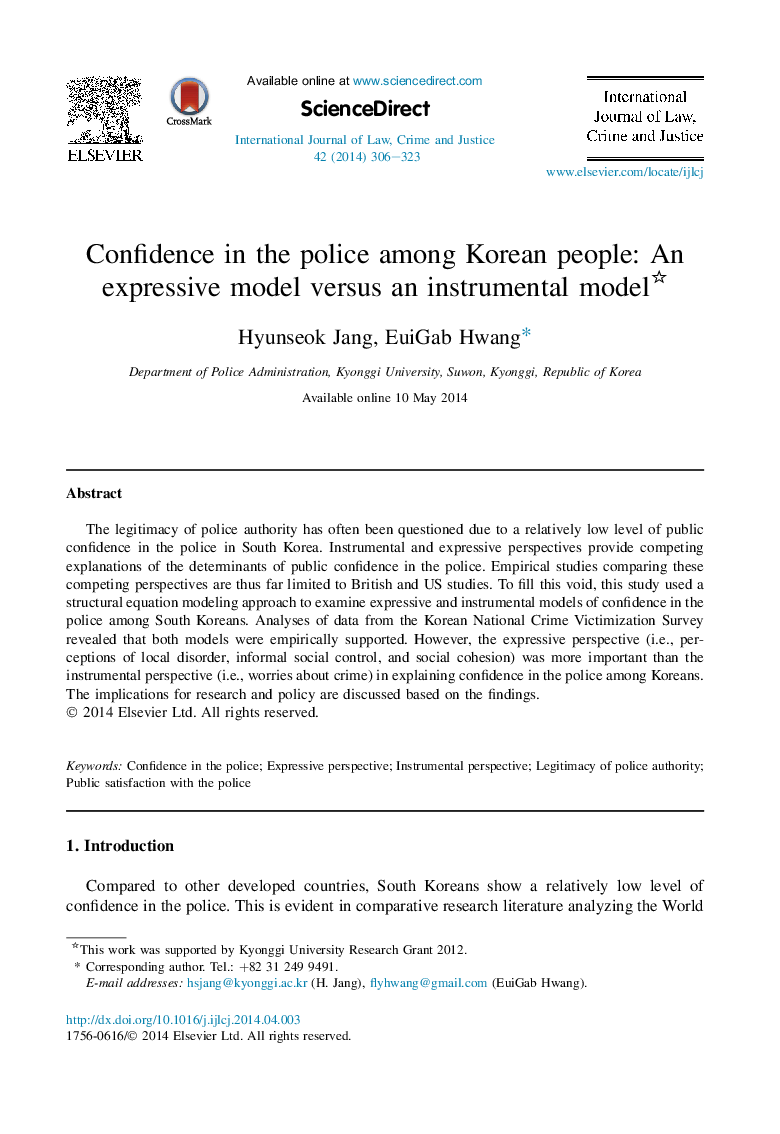| Article ID | Journal | Published Year | Pages | File Type |
|---|---|---|---|---|
| 1097894 | International Journal of Law, Crime and Justice | 2014 | 18 Pages |
•We tested competing models in public confidence in the police.•The structural equation modeling method was used for analyses.•Both models were supported, but the expressive perspective was more important.•Community oriented policing is a promising strategy to enhance public confidence.
The legitimacy of police authority has often been questioned due to a relatively low level of public confidence in the police in South Korea. Instrumental and expressive perspectives provide competing explanations of the determinants of public confidence in the police. Empirical studies comparing these competing perspectives are thus far limited to British and US studies. To fill this void, this study used a structural equation modeling approach to examine expressive and instrumental models of confidence in the police among South Koreans. Analyses of data from the Korean National Crime Victimization Survey revealed that both models were empirically supported. However, the expressive perspective (i.e., perceptions of local disorder, informal social control, and social cohesion) was more important than the instrumental perspective (i.e., worries about crime) in explaining confidence in the police among Koreans. The implications for research and policy are discussed based on the findings.
